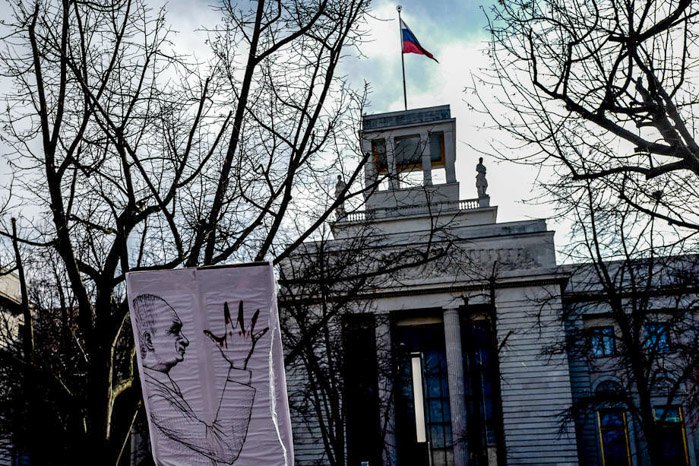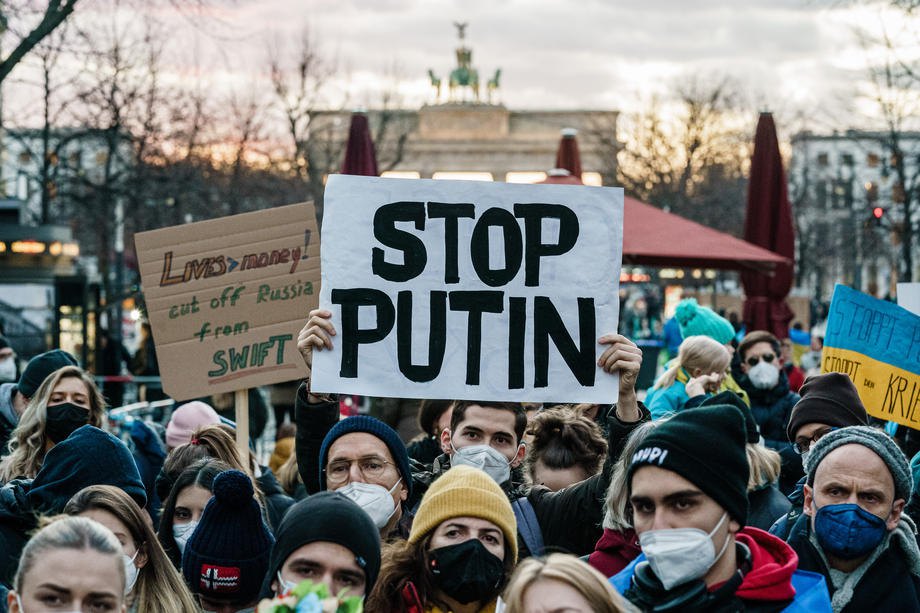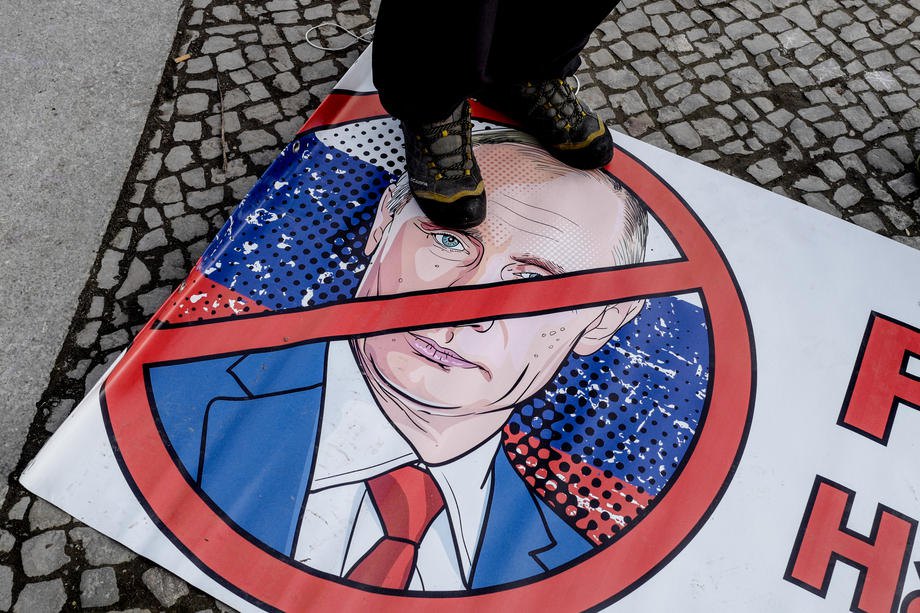
The Ukrainian Institute sent its appeal to more than 500 representatives of partner institutions and professional networks abroad and in Ukraine, encouraging them to issue statements of support and further spread the appeal on their behalf. We sent a separate letter to dozens of academic communities and universities in Europe and North America. More than 3,800 Ukrainian journalists, human rights activists, educators, and culture makers signed an open letter on “cultural sanctions” to their foreign counterparts. Well-known Ukrainians who live and work abroad have been spreading similar appeals.
Ukraine’s arguments are irrefutable: Russia has waged an unjustified war against a sovereign state and keeps grossly violating international law. Russian military cynically kills thousands of innocent people and deliberately destroys the architectural heritage of Ukrainian cities. Under such conditions, any cultural cooperation with the aggressor normalizes its war crimes and provides Russia with new platforms for self-presentation. In its appeals, the Ukrainian Institute makes it very clear that, for decades, Russia has been instrumentalizing culture for political propaganda, whitewashing its international reputation, distracting the international community from war crimes committed against other countries, and establishing imperial and colonial hierarchies in humanities and political science.
Leading scholars, curators, art historians, directors of foundations, museums, festivals, and philharmonics have been involved in this discourse. Many of them willingly cooperated with Russian state institutions even after the occupation of Crimea and parts of Donbas in 2014. They preferred to ignore questionable origins of Russian money that generously funded such cooperation, and never challenged the toxic and dubious narratives promoted through Russian artistic projects.
A prime example of such imprudent cooperation with Russia were several grandiose exhibitions of “Russian art” in 2017 that celebrated the 100th anniversary of the October Revolution, at MoMA in New York, the Royal Academy of Arts in London, and the Grand Palais in Paris. Having received full access to Russian collections and virtually unlimited resources, foreign curators did not shy away from Russia’s appropriation of artistic heritage of Ukraine and other countries, and uncritical aestheticization of totalitarian art.
The metaphor of “great humanistic Russian culture” spectacularly evaporated on 24 February 2022 when first bombs fell on Ukrainian cities. However, public sentiment for Tolstoy, Dostoevsky, Shostakovich or the so-called “Russian avant-garde” is still very much alive in the minds of millions of people all over the world who still believe that culture can be separated from politics and that responsibility for the war in Ukraine can be placed on Putin alone.

Solidarity of the whole world with Ukraine is truly unprecedented. International cultural community is doing a lot to support Ukraine through donations, charity events, public communications, and opportunities for refugee artists. However, Western institutions met the call to “cancel Russian culture” with mixed reactions, which suggests a misunderstanding of Ukraine’s position and the challenges faced by Ukrainian cultural diplomacy.
Several institutions, including the Metropolitan Opera, Carnegie Hall, and the Bavarian Opera have terminated their contracts with conductor Valery Gergiev and singer Anna Netrebko and announced their refusal to collaborate with Russian artists. The Cannes Film Festival chose not to welcome an official Russian delegation and individuals associated with the Russian government. Conversely, the Royal Opera House in London issued a shameful statement in which the war in Ukraine is called a “humanitarian crisis” and there is no mention of Russia. Most of Ukrainian Institute’s contacts condemned Russia’s invasion and expressed their willingness to help Ukrainian refugees but didn’t go much further in their statements. As expected, Polish and Lithuanian institutions took the most radical positions, while German PEN declared that “the real enemy is Putin, not Pushkin”, and most French institutions have been discreetly quiet.
Meanwhile, Western cultural and academic institutions have launched multiple programs designed to “reconcile” Ukrainians with Russians and moderate “intercultural dialogue.” Very few have thought to ask whether Ukraine is interested in any reconciliation four weeks into the war. Numerous residencies and artist support programs across Europe and North America welcome applications from Ukrainians, Russians, and Belarusians alike, treating all three groups as “victims of war” who are equally affected by the Russian state.
These unhelpful initiatives dilute the shared responsibility of all Russians for 22 years of Putinism, the current war in Ukraine, political passivity of the Russian society, failure, and defeat of its civil resistance. Sky is the limit for hypocrisy: Russian director Ilya Khrzhanovsky, creative lead of the hopelessly compromised Babyn Yar Holocaust Memorial Centre in Kyiv funded by sanctioned Russian oligarchs, Friedman and Khan, has signed a letter demanding to fight Putin's crimes in Ukraine.
These symptoms – perceived with anger and frustration in Ukraine and welcomed in Brussels, Washington, or Berlin – are not accidental. They are based on a fundamental misunderstanding of the nature of Ukrainian-Russian relations as well as perception of Ukrainian culture as lacking agency and significance.
The international community must finally understand that Russian invasion is a neo-colonial war on a sovereign and peaceful country, an attempt to restore Russia’s imperial geopolitical blueprint. Ukraine’s resistance is a decolonial struggle to break away from the former empire and to continue nurturing a Western-oriented political nation. Both countries’ existential objectives will always remain mutually exclusive. Ukraine is fighting for its independence not only with weapons, so the cultural front is no less important than military warfare.
Condescending Western perceptions of Ukraine’s calls to boycott Russia and the irresistible desire to “reconcile” the victim with its offender are also deeply colonial and arrogant. This outlook is framed by rigid hierarchies: Russia is still the center and Ukraine is a little-known periphery; the added value of Russian culture is higher than people’s lives; Russia's voice is far more authoritative than the voice of its colonized neighbors. This paradigm is hopelessly obsolete so we must never agree to “reconciliation” or dialogue without deconstructing it first.
The starting point of any reconciliation with Russia is far in the future: when Russia fully withdraws from Ukraine, including Crimea and Donbas, and an international tribunal holds Russia accountable for its war crimes. Putin’s reign must end, and the next democratically elected leadership, the media, and the civil society must unconditionally condemn and apologise for all their crimes. Russian society must critically reflect on its defeat and draw conclusions from it.
Of course, this scenario sounds too fantastic, but it does not mean that Ukraine should agree to any compromises today. Any hastened or premature reconciliation with Russia would be very dangerous, leading to a new round of re-colonization of Ukraine on existing constructs and vocabulary.
In other words, it will cement the current view of Ukraine as a cultural province. Russia will remain the center of Slavic, post-Soviet or Eurasian studies at international universities. The world will be even more willing to reconcile with Russia represented by a handful of its intellectuals who will retain their imperial and colonial thinking. Ukraine’s chance to establish its own rules of reconciliation may be lost.
The question “what to do with Russia after the war?” will be a great challenge for postcolonial studies. Russia is an unfortunate anachronism that has not undergone the painful process of decolonization, but for some reason, Western institutions are not ready to accept this. The current war is a chance to open their eyes. It is a chance to develop a new perspective, new principles of coexistence and communication – not only theoretical but, more importantly, implemented in specific legal, economic, and humanitarian policies to describe and establish a new world order. Ukraine must be among its co-creators.

The role of Ukrainian cultural diplomacy today is to reach this point as quickly as possible. This is a longer-term objective that will take years to achieve. In the context of the Russian war, cultural diplomacy must not offer dialogue or reconciliation, but rather provide deterrence from Russian cultural and linguistic dominance and safeguard our identity. This is our means of survival.








